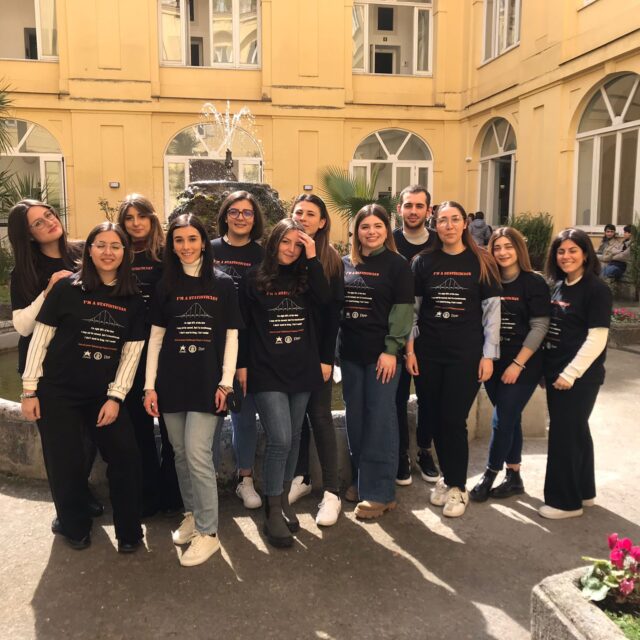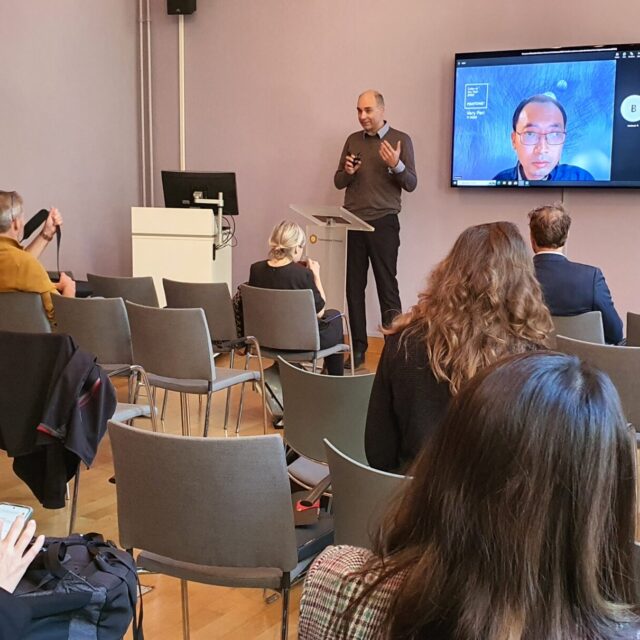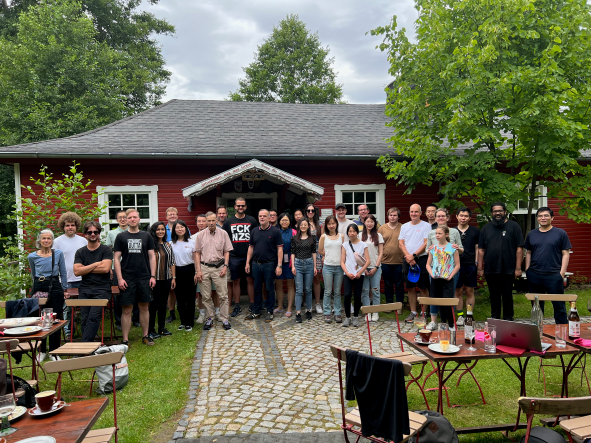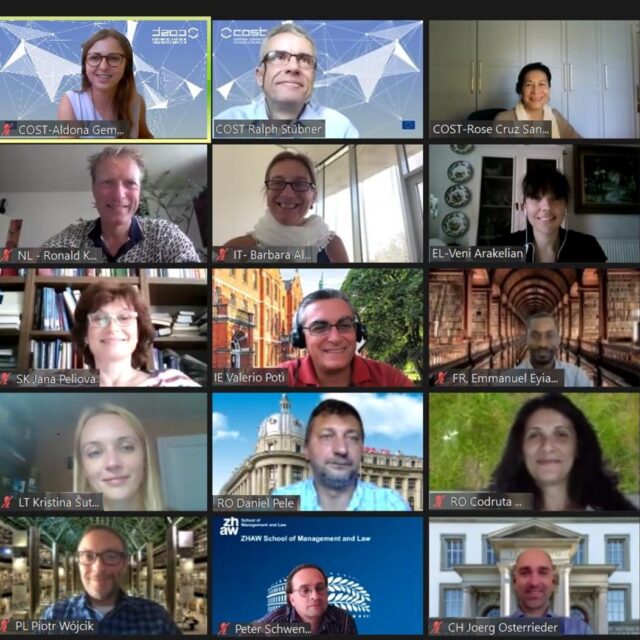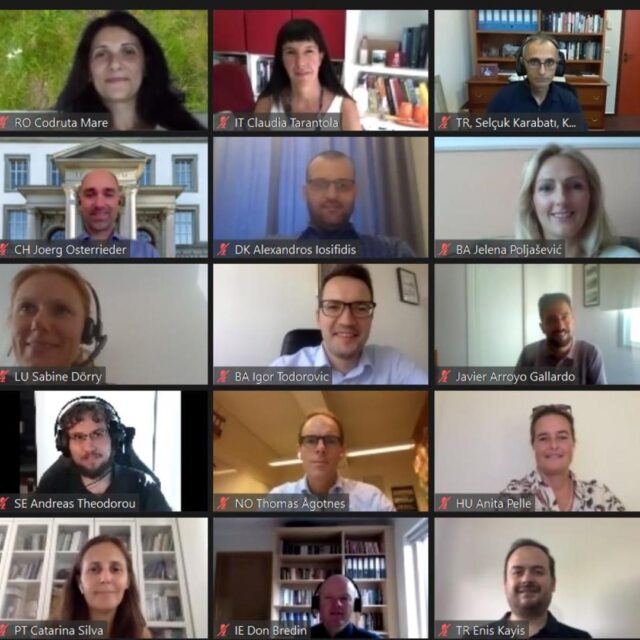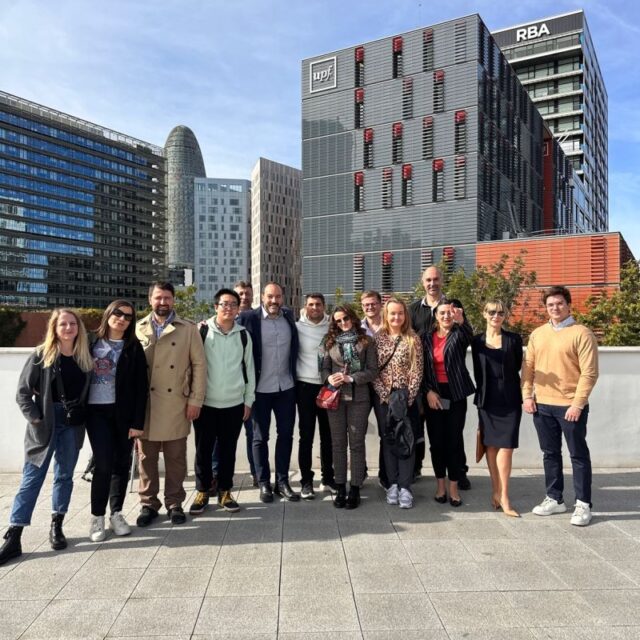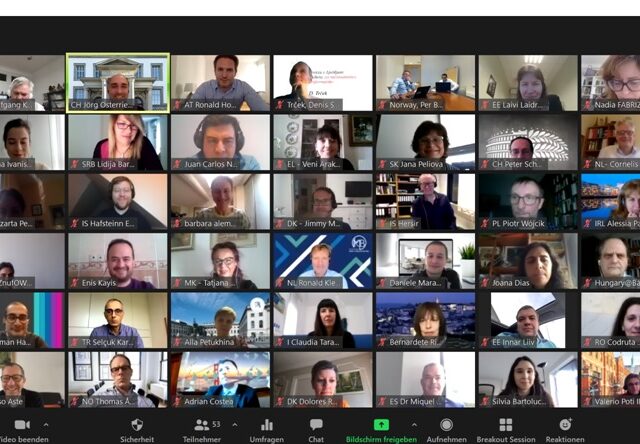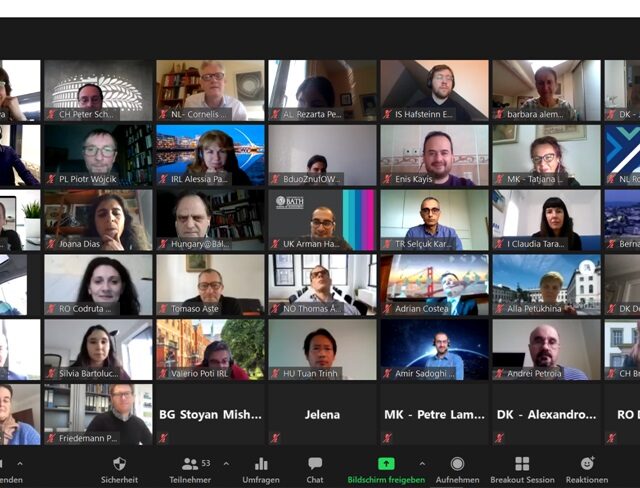Virtual Mobility Grants during 2022

Literature Review and Bibliometric Analysis on Venture Capital
Grant holder: Belma Öztürkkal
Description of Activities and results:
With this study, we evaluate trends in the Venture Capital research area in an objective matter and we are able to see the impact of each area in the field Private Equity, Angel Investors, Entrepreneurship and special focus areas as ESG, exit strategy. 489 Elsevier, Springer and MDPI papers through 2010-2022 are screened through bibliometric analysis. 147 papers on ESG are reviewed for VC. Exit strategy papers are reviewed as a seperate field of analysis. Purpose, data, model for important papers are summarized with tables. Most cited papers, region/countries publication, journal, authors, top authors, publication trend, keyword clusters are considered for reporting the research output. The study will be expanded as a journal submission with additional input following the VM period. The study will contribute to the expanding research on VC studies where main published studies in the field are brought together in a systematic manner. Four countries Turkey, Macedonia, Italy and Norway teams of COST 19130 collaborated in this VM study. At this stage Turkey (Belma Öztürkkal, VC ESG, conceptualization, writing, editing), Macedonia (Eftim Zdravevski, programming/coding for papers output, – Petre Lameski, conceptualization, leader of WG 2), Norway (Ranik Wahlstrom, conceptualization) and Italy (Alessandra Tanda, VC exit strategy) contributed to the study.
Gender differences in the knowledge and use of Fintech products: is there a role for transparency?
Grant holder: Alessandra Tanda
Description of Activities and results:
The project evaluates via surveys distributed online to European retail investors the level of knowledge of fintech applications and new AI tools and the role of gender in this level of knowledge. Additionally, we include questions to evaluate whether the experience is higher among females, STEM competence, or mathematical or scientific aptitude. The final aim would be to understand whether transparency can reduce gender gaps. To this end, we collect information on past performance and transparency of ETF from the KIIDs publicly available on the European stock exchanges’ websites and in the future, we will test if this information can drive the investment decision of investors, and any gender differences in this process. Currently, the questionnaire was made available, but due to the low rate of response is still open to answering. Evidence generally shows that the gender gap is substantial in many countries and can be further enlarged by fintech. This situation calls for important policy implications and the development of tools to foster inclusion.


Quantinar
Grant holder: Wolfgang Karl HAERDLE
Description of Activities and results:
With Quantinar, a p2p knowledge platform, we are tapping the important elements of the information age where the power of data and statistics has never been more prevalent. Academics, architects, medical doctors, journalists, lawyers, programmers and many other professionals nowadays require an accurate application of statistical methods. Instead many branches are subject to a crisis of integrity, which is shown in improper use of statistical models, p-hacking, HARKing or failure to replicate results. The first goal is to conduct basic qualitative and explorative work for the subsequent data collection and analysis. This leads to the results of task 2, that provides a suitable technical infrastructure that is used to securely record, process and make available scientifically and practically the multitude of different project data. Finally, criteria how to evaluate, e.g., lending platforms, NFT platforms and other DeFi-related projects will be identified using both quantitative and qualitative inputs and methods with different degree of formalization (e.g., from judgmental forecasting, drawing on the insight of experienced stakeholders, to formal Machine Learning (ML) classifiers). Insights from diverse sources of information and methods will be blended using newly developed ML tools, like expectile clustering.
Women in Fintech European Datathon
Grant holder: Albulena SHALA
Description of Activities and results:
The Women in Fintech Datathon is a data mining event (data analysis) organized by the Women in Fintech Conference Committee represented by several researchers of the Cost Action FinAI CA19130, University of Tirana and University of Naples Federico II. The Datathon aims to promote the analysis of data on the goals of the Women in Fintech II Conference, and more general in the field of the FinAI Action. Among the main topics to be developed by means of (open access and real) data analysis: Gender diversity in Fintech corporate world, Fintech gender diversity in different EU countries, Gender pay gap in Fintech roles. A competition like Datathon is a great way to attract attention of students and young researchers in early stages of their career on the Action goals. Having students compete against one another can motivate them to work harder to achieve their tasks. Datathon can also be a great chance to meet prominent employers who are ordinarily hard to reach. Traditional recruitment procedures can be time-consuming, and many excellent students fall through the gaps and never get the opportunity to work for their ideal companies. Traditional application requirements are primarily centered on academic achievement, which may or may not reflect their genuine abilities and capabilities. Finally, student competitions allow them to put their ideas to the test to discover if they are viable in a risk-free setting where they may get feedback from peers and professionals.


The Role of FinTech in Cashless Economy and Green Growth
Grant holder: Dr. Esra Kabaklarlı
Description of Activities and results:
This VMG outlines two main areas for the possible application of fintech to green growth and cashless economy. Firstly, panel data analysis, the impact of cashless economy on green growth will be applied to the selected countries in the years between 2012-2019. These selected countries are Argentina, Australia, Brazil, Canada, China, Hong Kong, India, Indonesia, Japan, Korea, Mexico, Russia, Saudi Arabia, Singapore, South Africa, Sweden, Switzerland, Turkey and United Kingdom. The random effect method will be used in panel data to analyses cashless economy impact on green growth. At the second stage of the VMG, survey on environmental awareness will be carried out with University students/staff to understand their level of environmental awareness, interest, and somehow their attitude. This survey, involving participants from CA19130 countries Egypt, Croatia, Albania, Iceland, Kosova, France and Turkey, attempted to be a micro-study that will help us better understand their awareness about the impact of their activities on the environment. Results: It is found that the regression coefficient of CO 2 productivity and number of cards per inhabitant are significantly positive, indicating that the cashless economy and carbon neutral production has a significant promoting effect on economic growth. Secondly It is found that the cash level of population variable (Banknotes and coins in circulation) passes the significance test of 10% confidence level, and the negative effect of economic growth.
Challenges and opportunities for Fintech innovations – from technical to regulatory
Grant holder: Ioana COITA
Description of Activities and results:
The main objective of this VMG is to get a better understanding of the challenges and opportunities posed by the adoption of Artificial Intelligence algorithms into the industry, from double perspective regulatory and technical. Secondly, it aims to open a platform for discussing hot topics like centralized versus decentralized blockchain use in the Fintech industry, explain ability of AI models, risk assessment tools in the lending sector. Thirdly, it wants to bring together researchers, regulators and industry at same table to tackle the subjects presented beforehand. The most important expected output and deliverable will be a report assessing the state-of-the-art of the challenges encountered by Fintech innovation to its way to industry and market. This report will highlight the problems and solutions identified regarding centralized versus decentralized blockchain use in the Fintech industry, explain ability of AI models, risk assessment tools in the lending sector from both a regulatory and a technical perspective. The research and the output report are important pieces in the CA19130’s strategy to engage stakeholders, as they address all the actions mentioned in this strategy. Additionally, they tackle the main purpose of the strategy – “to involve them directly in papers and research on the topics covered by the Action”.


The Fintech Sector in Romania and the Balkans
Grant holder: Codruta MARE
Description of Activities and results:
The main objective of this VMG is to give a first glance at the Romanian Fintech sector, on the one hand, and the Balkans’ one, on the other. It is planned to be a first step into (1) a thorough assessment of the Romanian and the Balkans’ FinTech industry, and (2) a tool to contribute to the strategy of engaging stakeholders in the CA 19130. Activities run under this VMG have the purpose to enhance academia – FinTech sector cooperation. The main goal of the VMG is to build the first report on the status of the Romanian Fintech industry.
The most important expected output and deliverable will be the first report assessing the state-of-the-art of the Romanian FinTech sector. This report will highlight the financial performance of the companies belonging to this industry, along with other characteristics of the market. The research and the output report are important pieces in the CA19130’s strategy to engage stakeholders, as they address all the actions mentioned in this strategy. Another scientific output of the VMG consists in the database that will encompass all the details related to the Romanian FinTech industry. This will be the starting point for the international assessment. A podcasts will be another result of the VMG.
Data mining event to investigate gender diversity in financial inclusion
Grant holder: Maria IANNARIO
Description of Activities and results:
Increasing attention has been recently paid to assessing individuals’ financial competence, and more generally, financial inclusion. The latter is critical in reducing poverty and achieving inclusive economic growth. Indeed, when people can participate in the financial system, they are more able to start and expand businesses, invest in their children’s education, absorb financial shocks. The VMG proposal fits in the Excellence and Inclusiveness policy by providing a virtual and real space for collaboration among students, young and senior researchers in terms of gender, nationality, stage of career and age. The planned activities are set within the Diversity team of the FinAI Cost Action, but of course open to the other members of the Cost Action and to new members, based on expertise and potential contribution. Furthermore, it aims at involving new researchers interested in Improving the knowledge about financial inclusion. The VGM is planned to improve the capability of the next generation to work on an interdisciplinary study via the Internet and through the use of online collaborative tools, such as cloud, data repositories and video call applications. This allows researcher to contribute to the goals of the Action with more ease and without the costs of travelling, that might require also visa applications.


Editorial boards of finance journals: gender and social connectedness
Grant holder: Barbara BEDOWSKA-SOJKA
Description of Activities and results:
The main objective of this VMG is to look into the representation of women on the editorial boards of Finance journals. We also focus on the concentration of power among editors and its effects on the diversity and inclusion of Finance journals, following the diversity strategy and objectives of CA19130. The most important expected output and deliverable will be the paper assessing the networks and gender issues in the editorial of financial journals. This work will give some insights into the existence and specifics of the relations between editors. The research and the output report (a paper) are important pieces in the CA19130’s strategy (1) to foster collaboration among the action members in a virtual setting, and (2) to advance the diversity and inclusiveness goals and strategy. Another significant scientific output of the VMG consists in the database that will encompass all the details related to the editorial boards and their gender structure.





